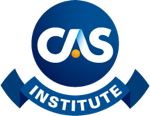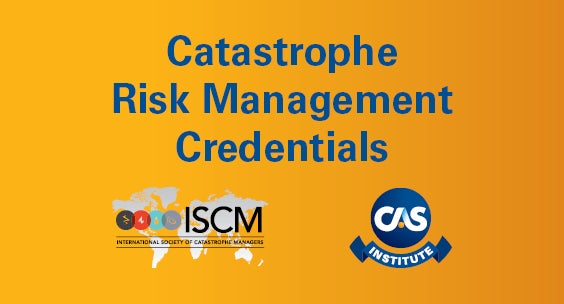What are the requirements to complete the CSPA credential?
The following must be completed to earn the CSPA credential:
- Property-Casualty Insurance Fundamentals (PC1) online course and exam
- Data Concepts and Visualization (DS1) online course and exam
- An Ethics and Professionalism course (must be completed prior to taking Predictive Modeling – Methods and Techniques)
- Predictive Modeling – Methods and Techniques (DS2) exam
- A Case Study project
Do ACAS and FCAS credential holders qualify for any waivers?
ACAS and FCAS designees fully satisfy the first requirement, Property Casualty Insurance Fundamentals, as well as the Ethics and Professionalism course requirement.
Are there any other waivers available?
A waiver for PC1 is extended to candidates who have completed CAS Online Courses 1 and 2, as well as CAS exam 5. Additionally, the CAS Course on Professionalism fulfills the Ethics and Professionalism requirement. CAS candidates who have passed exams MAS-I and MAS-II can apply to waive the Predictive Modeling – Methods and Techniques requirement. Please note that the waiver is only available to those who have passed both MAS-I and MAS-II. If you have credit for MAS-I or MAS-II via other exams, you do not qualify for the waiver.
To apply for a waiver, please see the Waivers section
Are all of the exams in multiple choice format?
The 1st and 2nd assessments are in multiple choice format. The 3rd assessment – Predictive Modeling and Techniques – will be offered using an online platform which may include some multiple choice, short answer and ”hands-on” questions. For example, you may be asked to write simple R code and run that code against a provided dataset to generate output.
How is Exam 3 administered?
Exam 3: Predictive Modeling – Methods and Techniques is administered remotely through the cloud-based platform TrueAbility, so candidates can take the exam at a location of their choice.
To take the exam, candidates require either an in-person or remote proctor. We ask candidates to find a proctor for their exam. Once registered, candidates must provide contact information for their proctor as well as a preferred start time for their exam.
Who can be a proctor for my exam?
Your proctor can be a manager or supervisor, an administrative assistant, or another professional in your network. Proctors must have their own computer so that they can release your exam to you at your scheduled start time. Instructions are provided to your selected proctor once we have received their contact information. A proctor who is ACAS, FCAS, CSPA or CPCU is preferred, but not required.
How does remote proctoring work?
Proctors who cannot be in the same location as the candidate and need to proctor the exam remotely may do so using Zoom, Teams, or similar videoconferencing software. Candidates must have a webcam and microphone to have their exam proctored remotely.
Before the exam, the proctor will have the candidate rotate the camera so they can make sure there are no prohibited materials within reach or sight. The candidate’s camera, screen share, and microphone must always remain on throughout the exam.
When does my exam begin?
We ask candidates to provide a start time to ensure that there is support available to you during your exam, however the exam does not start until the proctor releases the exam. You cannot start the exam earlier than your start time.
How is the Case Study project administered?
The Case Study project is administered through The Institutes platform. On the day the project window begins, candidates will receive an email from The Institutes granting them access to the course for the project. Candidates are given 60 days to complete the project.
Within the course, candidates will have access to all materials needed to complete the project, including data sets, instructions, and submission templates. Candidates submit their project on The Institutes website through the same course which they accessed the materials.
When and how will I receive my results?
Results for Exam 3 are available 3-6 weeks after the exam date. When results are available, candidates receive an email informing them if they passed or failed.
For the Case Study project, results are available 6-8 weeks after the project period has ended. When results are available, candidates receive an email informing them of their result.
How is the Case Study project graded?
Each case study must be completed within 2 months and has an estimated completion time of 50 hours. The case study project will be reviewed by a panel of qualified Subject Matter Experts. Each project will have a minimum acceptable standard. If the subject work submitted is incomplete, it will be not be accepted. If the project work is complete but is deficient relative to the standard, a candidate will be provided with suggestions and receive one additional month to correct the deficiencies.
What are the consequences of failing an exam or case study?
Candidates who fail to pass a CSPA assessment are able to take the assessment over again for a re-test fee. There is no limit to the number of times a candidate can attempt either an exam or project.
Can I use any computer to complete the case study project? What defines a “secure environment”?
Any computer can be used to complete the case study project. It has been recommended that candidates use a Chrome Browser for the optimal experience. Secured environment means that all of the work will be done while logged in and using the tools provided; the data set will not be downloadable.
What is the recommended study time, number of exam questions and maximum time allowed for each exam?
| Course | Study Time (est.) | # Questions | Time Allowed |
| Online Ethics Module | 2-3 hours | Not timed | |
| CSPA Exam 1 | 100-150 hours | 75 | 3 hours |
| PC2 | 2-3 hours | Not timed | |
| CSPA Exam 2 | 250-300 hours | 100 | 3 hours |
| CSPA Exam 3 | 300-350 hours | varies | 4 hours |
| CSCR Exam 1 | 250-300 hours | 100 | 3 hours |
| CSCR Exam2 | 200-250 hours | 60 | 2 hours |
| CSCR Exam3 | 300-350 hours | 125 | 3 hours |
| CSCR Exam4 | 250-300 hours | 100 | 3 hours |



